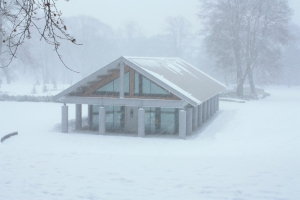It’s been cold and snowy in Boston this winter, creating an increased risk of car accidents and other winter storm dangers. With several more months of winter remaining, our Boston workers’ compensation attorneys urge all employers to heed OSHA’s guidelines on keeping workers safe during bad winter weather.
When issuing its guidelines, OSHA includes a reminder that every employer is responsible for providing a safe workplace and for securing the safety and health of workers. When a worker suffers any type of injury at work, employers can become liable for paying workers’ compensation benefits. Employers, therefore, have strong financial incentive to do everything possible to protect their workers this winter in addition to their moral obligation not to put their employees in harms way. 
Winter Danger to Workers
OSHA cites information from the National Weather Service about the types of winter dangers that workers face. According to this data, approximately 70 percent of injuries attributed to winter storms occur as a result of auto accidents. Another 25 percent of injuries occur when people are trapped out in the storm.
Workers are at risk of both types of injuries. Many workers, including those in snow removal and construction, perform work outside during all types of weather. These workers could easily be caught in a winter storm. Workers also routinely drive for work, whether they are bus or truck drivers who drive for a living; salesmen who travel to visit clients; or office workers running necessary errands for their bosses.
How to Protect Workers
To minimize the risk of anticipated dangers from winter storms, OSHA lays out a multi-step process for employers. The steps focus on planning; equipping workers for safety; providing proper training; knowing the warning signs and staying informed.
OSHA addresses storm preparedness first. They advise employers to carefully monitor weather news sources so they can be adequately informed if a winter storm is coming. Employers should be aware of the different types of weather watches and warnings including:
- Winter storm watches: A storm is likely
- Winter weather advisories: Conditions may be dangerous, especially to drivers
- Frost/freezing warnings: Plants and crops could be damaged by the ground freezing
- Winter storm warnings: The storm is entering the area and it is time to take action
- Blizzard warnings: A bad storm is coming
- Wind chill: High winds and cold temperatures combine to make it feel colder than it is.
In addition to paying attention to the different winter weather warnings, OSHA also suggests:
- Preparing vehicles by performing maintenance and inspections and carrying blankets; snow brushes; extra clothes; flashlights; water; and other safety equipment and storm gear.
- Preparing workers to respond in the event a problem develops. This includes helping workers to understand what to do if they are trapped in their vehicles; providing tips for shoveling; training workers on safe removal of downed trees or damaged power lines; training workers on safe snow blower use; and advising workers on how to prevent frost bite or hypothermia when working outside.
By following these and other winter preparedness tips provided by OSHA, employers can hopefully help to ensure that their workers do not get hurt over this cold winter season.
If you or a loved one has been injured in a work accident in the Greater Boston area, contact Jeffrey Glassman Injury Lawyers for a free consultation. Call (617) 777-7777.
 Massachusetts Workers Compensation Lawyers Blog
Massachusetts Workers Compensation Lawyers Blog

